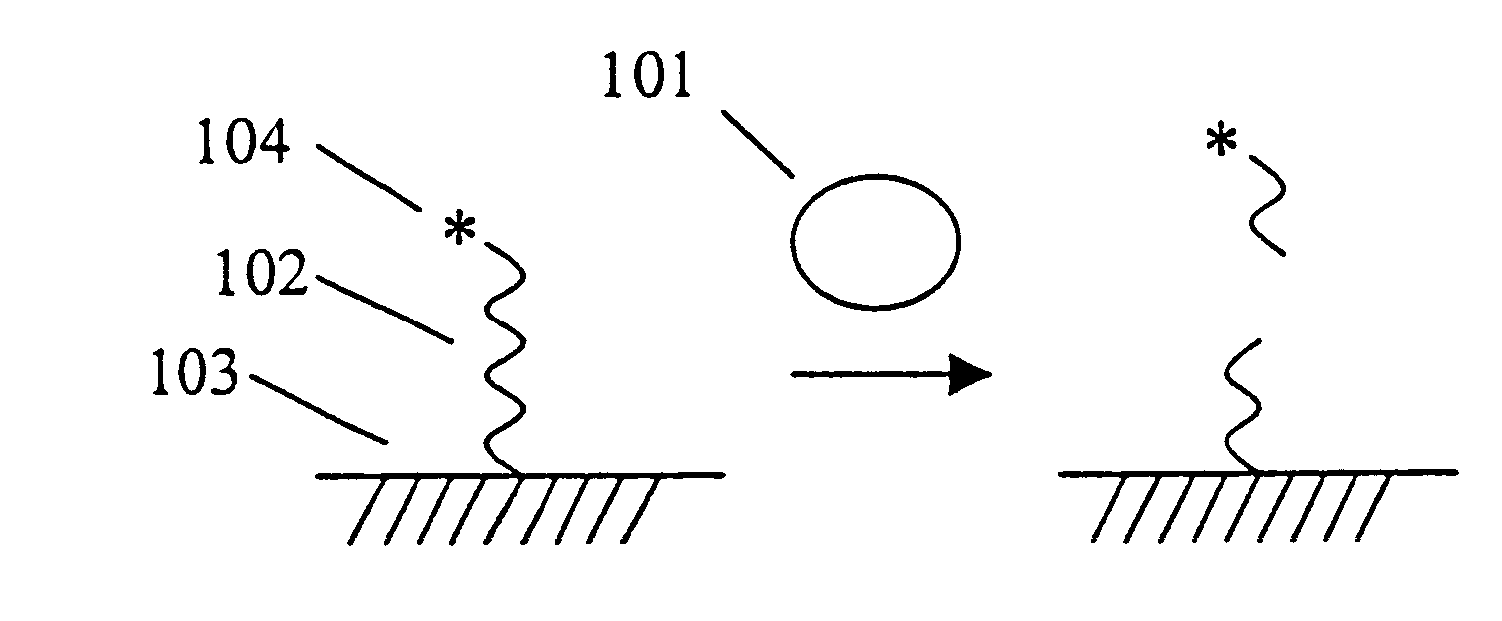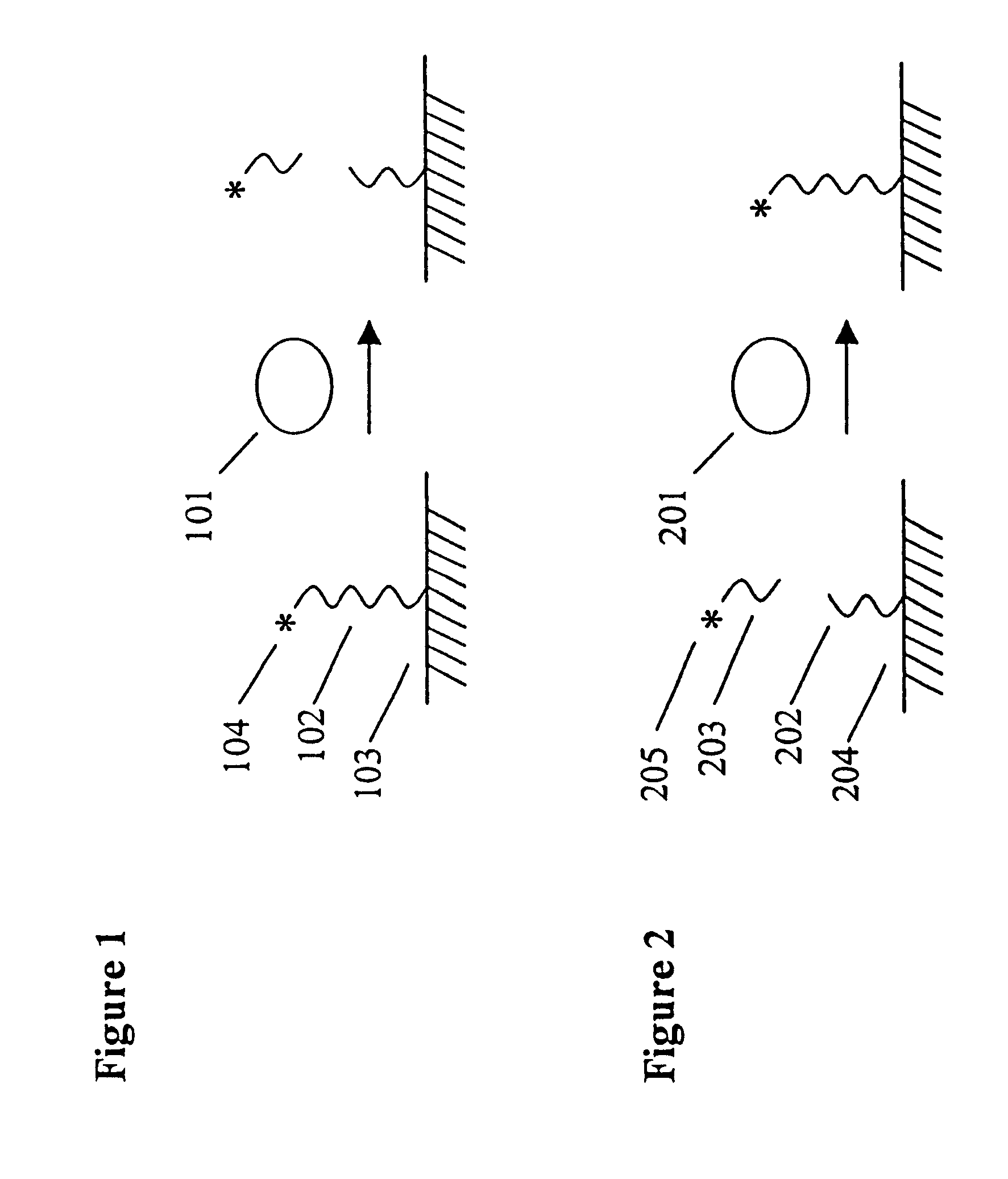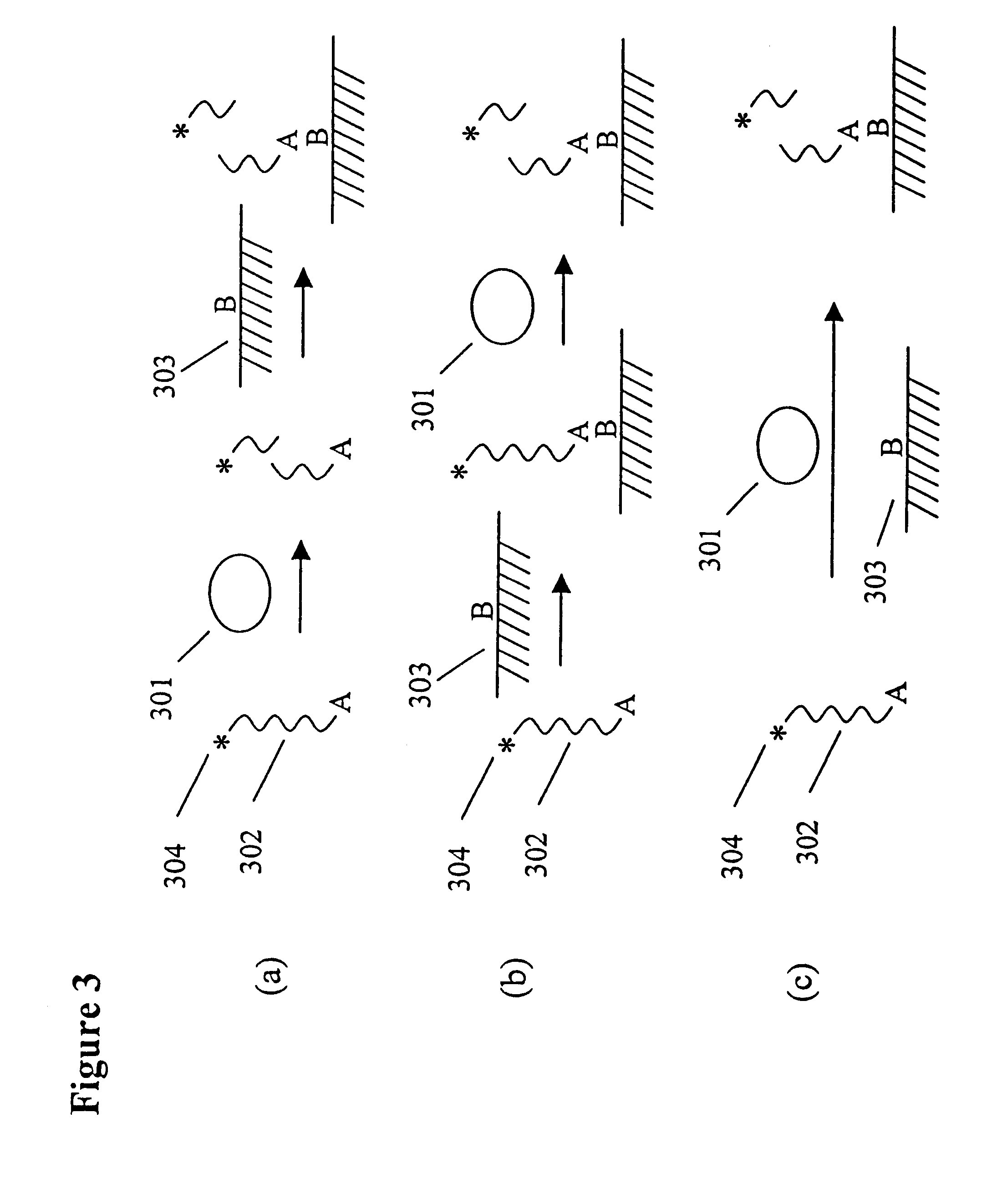Assays for measuring nucleic acid binding proteins and enzyme activities
a nucleic acid binding protein and enzyme activity technology, applied in the field of life sciences research and medical diagnostics, can solve the problems of high background signal associated with spa approach, high requirement for radioactive reagents, and laborious process, and achieve simple, accurate and reliable assays
- Summary
- Abstract
- Description
- Claims
- Application Information
AI Technical Summary
Benefits of technology
Problems solved by technology
Method used
Image
Examples
example 1
A DNase Protection Assay for the Assessment of DNA-protein Interactions
This example illustrates the use of the invention to measure protein-DNA interactions, specifically, the binding of the transcription factor NFk.beta. with its consensus DNA sequence. A schematic depicting the assay format can be found in the detailed description of the invention. DNAse 1 and NFk.beta. were purchased from Promega Corp. A DNA substrate containing a consensus DNA sequence for NFk was prepared by Midland Certified Reagent Co. by solid phase synthesis. The sequence of the substrate is shown below. The nucleotides shown in brackets were linked by phosphorothioate linkages; the other linkages were standard phosphodiester bonds. One of the strands of the double stranded DNA substrate was labeled at the 5'-end with RuBpy and at the 3'-end with biotin using standard labeling techniques.
5'-RuBpy-[AGTTGAGG]GGACTTT[CCCAGGC]-Biotin-3' (SEQ ID NO 1) TCAACTCCCCTGAAAGGGTCCG-3' (SEQ ID NO 2)
The labeled DNA substr...
example 2
An ECL-based Assay for the Measurement of Protease Activity
This assay system consists of a ruthenylated (RuBpy-labeled) substrate immobilized on paramagnetic beads and the enzyme of interest. The RuBpy label is released by the action of the enzyme. The ECL of the free label is measured using the ORIGEN Analyzer (IGEN International).
Dynabead.RTM. M280 Sheep anti-mouse IgG coated beads (IGEN International, Inc.) were RuBpy-labeled at a 200:1 challenge ratio of RuBpy to IgG to introduce RuBpy groups on the immobilized IgG molecules. The labeling was carried out using a derivative of RuBpy linked to an NHS ester (TAG-NHS, IGEN International) according to established procedures. The beads were then washed three times, thirty minutes each, at 4.degree. C. with equal volumes of PBS, pH 7.8, and once overnight at 4.degree. C. Replicate test samples were prepared with 100 .mu.l of solutions containing known amounts of Proteinase K (Sigma) in phosphate buffered saline, pH 7.8 and 25 .mu.l of ...
example iii
An ECL-Based Assay for the Measurement of Factor Xa Activity
Factor Xa is a serine protease that cleaves the site adjacent to the arginine in the amino acid sequence IEGRX. The assay uses a peptide substrate that is labeled at the N-terminus with RuBpy and at a lysine at the carboxy terminus with biotin (RuBpy-IEGRGUEUEK-Biotin). Streptavidin-coated Dynabeads (IGEN International) were used to capture the labeled-peptide. The captured peptide is incubated with a sample containing the protease. Increasing amounts of protease in the sample led to increased rates of cleavage and (for a given amount of time) less RuBpy on the beads and more RuBpy in solution. The reaction products were analyzed on an ECL measurement instrument (ORIGEN Analyzer, IGEN International). The measurements were carried out in Solution Mode (i.e., the samples were analyzed under conditions that did not lead to significant settling of the bead suspension on the electrode; under these conditions the ECL signal was p...
PUM
| Property | Measurement | Unit |
|---|---|---|
| Length | aaaaa | aaaaa |
| Electrical resistance | aaaaa | aaaaa |
| Fluorescence | aaaaa | aaaaa |
Abstract
Description
Claims
Application Information
 Login to View More
Login to View More - R&D
- Intellectual Property
- Life Sciences
- Materials
- Tech Scout
- Unparalleled Data Quality
- Higher Quality Content
- 60% Fewer Hallucinations
Browse by: Latest US Patents, China's latest patents, Technical Efficacy Thesaurus, Application Domain, Technology Topic, Popular Technical Reports.
© 2025 PatSnap. All rights reserved.Legal|Privacy policy|Modern Slavery Act Transparency Statement|Sitemap|About US| Contact US: help@patsnap.com



